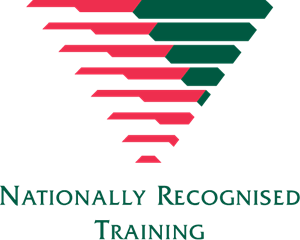New to online learning and not sure where to start? We have Study Tips to help you navigate through the online learning experience and to stay motivated!
Studying can be challenging, so it’s important to us that you have access to help you reach your academic and personal potential.
We understand that this might be your first time studying since leaving school, or you may have never completed online training before. You’ll find our Study Tips Guide full of top tips for effective study skills. Download the guide here.
Most of our assessments will require you to supply written responses and may use a range of ‘instructional words’, such as ‘identify’ or ‘explain’. These words will guide you as to how you should answer the question. Some questions will also tell you how many answers you need to give – for example, ‘Describe three strategies…’.
The following list will help you to provide correct responses:
- Analyse – when a question asks you to ‘analyse’, you should do so in detail, identifying important points and key features. Generally, you are expected to write a response of one to two paragraphs in length.
- Compare – when a question asks you to ‘compare’, you will need to show how two or more things are similar, ensuring you also indicate the relevance of the consequences. Generally, you are expected to write a response of one or two paragraphs in length.
- Contrast – when a question asks you to ‘contrast’, you will need to show how two or more things are different, ensuring you indicate the relevance or the consequences. Generally, you are expected to write a response of one or two paragraphs in length.
- Describe – when a question asks you to ‘describe’, you will need to state the most noticeable qualities or features. Generally, you are expected to write a response of two or three sentences in length.
- Discuss – when a question asks you to ‘discuss’, you are required to point out important issues or features and express some form of critical judgment. Generally, you are expected to write a response of one or two paragraphs in length.
- Evaluate – when a question asks you to ‘evaluate’, you should do so putting forward arguments for and against something. Generally, you are expected to write a response of one or two paragraphs in length.
- Examine – when a question asks you to ‘examine’, this is similar to ‘analyse’. You will need to provide a detailed response with key points and features and provide a critical analysis. Generally, you are expected to write a response of one or two paragraphs in length.
- Explain – when a question asks you to ‘explain’, you will need to make clear how or why something happened or the way it is. Generally, you are expected to write a response of two or three sentences in length.
- Identify – when a question asks you to ‘identify’, you will need to briefly describe the required information. Generally, you are expected to write a response of two or three sentences in length.
- List – when a question asks you to ‘list’, this means you will need to briefly state information in a list format, often with a specific number of items indicated.
- Outline – when a question asks you to ‘outline’, this means giving only the main points. Generally, you are expected to write a response of two or three sentences in length.
- Summarise – when a question asks you to ‘summarise’, this is similar to ‘outline’, only giving the main points. Generally, you are expected to write a response of two or three sentences in length.

